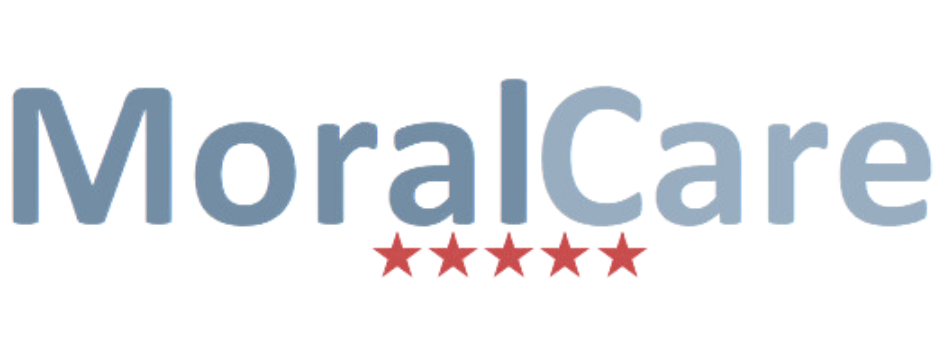Zero Toxicity Policy

1. Legal Framework and Compliance
1.1 Statutory Requirements
This policy complies with:
Employment Rights Act 1996 - Mutual trust and confidence obligations
Equality Act 2010 - Protection from harassment and discrimination
Data Protection Act 2018 and UK GDPR - Confidentiality of personal information
Human Rights Act 1998 - Right to privacy and family life
Protection from Harassment Act 1997 - Prevention of workplace harassment
Health and Safety at Work Act 1974 - Duty to provide safe working environment
1.2 ACAS Guidance Integration
This policy follows ACAS guidance on:
Code of Practice on Disciplinary and Grievance Procedures - Proper channels for raising concerns
Bullying and Harassment at Work - Creating respectful workplace environments
Managing Conflict at Work - Constructive approaches to workplace disagreements
Discipline and Grievances at Work - Fair treatment and due process
1.3 CQC Regulatory Standards
Professional Standards Compliance:
CQC Fundamental Standards - Staff conduct and professional behaviour
Fit and Proper Person Requirements - Integrity and good character expectations
Duty of Candour - Open and honest communication culture
2. Policy Purpose and Scope
2.1 Objective
This policy promotes a positive, professional work culture that supports MoralCare's mission of delivering exceptional care while maintaining the highest standards of staff conduct and communication.
Legal Foundation: Under the Employment Rights Act 1996, there is an implied term of mutual trust and confidence between employer and employee, requiring respectful professional conduct.
2.2 Scope
Application: This policy applies to all MoralCare employees, including:
Care workers and support staff
Supervisory and management personnel
Administrative and ancillary staff
Temporary and agency workers
Volunteers and work placement students
Coverage: All forms of communication including verbal, written, electronic, and social media interactions.
3. Definition of Unprofessional Communication
3.1 Gossip and Negative Communication
Legal Context: Under the Equality Act 2010, gossip that creates a hostile work environment may constitute harassment, particularly if it relates to protected characteristics.
Prohibited Behaviours Include:
Discussing colleagues' personal matters without their presence or consent
Spreading unverified information about individuals or company matters
Making derogatory comments about colleagues, management, or service users
Engaging in speculation that could damage reputations
Encouraging others to participate in negative discussions
Using social media to criticize colleagues or the company
3.2 ACAS Definition Alignment
Professional Standards: Following ACAS guidance on workplace behaviour, unprofessional communication includes any conduct that:
Undermines colleagues or management
Creates a hostile work environment
Damages working relationships
Affects service delivery quality
Breaches confidentiality obligations
4. Impact Assessment and Legal Consequences
4.1 Workplace Impact
Evidence-Based Consequences: Research and ACAS guidance identify that gossip and negative communication can:
Reduce team morale and productivity
Increase staff turnover and recruitment costs
Damage service user confidence and safety
Create legal liabilities for harassment claims
Compromise professional care standards
Affect mental health and wellbeing of staff
4.2 Legal Implications
Potential Legal Consequences:
Constructive Dismissal Claims: Creating hostile work environments
Harassment Claims: Under Equality Act 2010
Defamation Actions: False statements damaging reputation
Data Protection Breaches: Sharing personal information inappropriately
Professional Misconduct: Affecting CQC registration and compliance
5. Professional Communication Standards
5.1 Positive Communication Requirements
ACAS Best Practice Implementation:
Employees Must:
Communicate directly with relevant managers about work concerns
Use established grievance procedures for serious matters
Maintain confidentiality of personal and professional information
Speak respectfully about colleagues and management
Focus discussions on work-related matters only
Support colleagues through constructive feedback
Legal Foundation: Employment contracts contain implied terms requiring employees to maintain trust, confidence, and professional standards.
5.2 Proper Communication Channels
Structured Approach Following ACAS Guidance:
For Work-Related Concerns:
Rota Issues: Discuss with scheduling coordinator
Pay Queries: Contact payroll administrator
Colleague Conflicts: Approach senior carer or manager
Policy Questions: Consult line manager or Rebecca Williamson
Serious Concerns: Use formal grievance procedure
Escalation Process:
Direct discussion with relevant person
Line manager involvement if unresolved
Formal grievance procedure for serious matters
External mediation if required (ACAS services)
6. Privacy and Confidentiality
6.1 Personal Information Protection
Legal Framework: Under Data Protection Act 2018 and Human Rights Act 1998:
Employees have right to privacy regarding personal matters
Discussing colleagues' private lives without consent may breach privacy rights
Personal information must be processed fairly and lawfully
Protected Information Includes:
Relationship status and family circumstances
Health and medical information
Financial situations and personal difficulties
Home life and personal relationships
Previous employment history
6.2 Professional Confidentiality
CQC and Professional Standards:
Service user information must remain confidential
Internal company matters require appropriate discretion
Professional boundaries must be maintained at all times
Breach of confidentiality may result in professional misconduct proceedings
7. Reporting Procedures and Whistleblowing
7.1 Legitimate Concerns
Legal Protection: Under Employment Rights Act 1996 and Public Interest Disclosure Act 1998, employees are protected when raising genuine concerns about:
Health and safety violations
Professional misconduct
Breach of legal obligations
Criminal activity
Miscarriage of justice
Proper Reporting Channels:
Immediate supervisor or line manager
Rebecca Williamson, Managing Director
External regulatory bodies (CQC, Local Authority)
Professional bodies if applicable
7.2 ACAS Guidance on Raising Concerns
Best Practice Approach:
Raise concerns promptly and constructively
Use internal procedures before external reporting
Focus on facts rather than speculation
Maintain confidentiality during investigations
Cooperate with legitimate inquiries
8. Three Golden Rules Framework
8.1 Legal Basis for Communication Standards
ACAS-Aligned Principles:
Rule 1: Relevance Test "If it doesn't concern you - do not discuss it"
Legal Basis: Data protection principles require legitimate interest
Application: Only discuss matters directly related to your role
Exception: Legitimate whistleblowing concerns
Rule 2: Need-to-Know Principle "If it does not concern the person you wish to tell - do not discuss it"
Legal Basis: Confidentiality obligations and privacy rights
Application: Share information only with those who need to know
Exception: Authorized reporting to management
Rule 3: Reputation Protection "If it could damage a company or person's reputation - do not discuss it"
Legal Basis: Defamation law and duty of trust and confidence
Application: Avoid statements that could harm reputations
Exception: Protected disclosures under whistleblowing legislation
9. Disciplinary Framework
9.1 ACAS Code Compliance
Fair Disciplinary Process: Following ACAS Code of Practice on Disciplinary and Grievance Procedures:
Minor Breaches:
Informal counseling and guidance
Verbal warning with improvement expectations
Additional training on professional communication
Serious Breaches:
Formal written warning
Final written warning
Disciplinary action up to and including dismissal
Gross Misconduct:
Gossip affecting service user safety
Serious harassment or bullying
Malicious defamation
Breach of confidentiality causing significant harm
9.2 Aggravating Factors
Enhanced Disciplinary Response for:
Communication in presence of service users or public
Social media misconduct affecting company reputation
Repeated violations after warnings
Malicious intent to cause harm
Breach of vulnerable adult safeguarding
10. Legal Remedies and Recovery
10.1 Civil Remedies
Legal Action for Serious Breaches: MoralCare reserves the right to pursue:
Defamation Claims: For false statements damaging reputation
Breach of Contract: For violation of confidentiality terms
Injunctive Relief: To prevent continued harmful behavior
Damages Recovery: For financial losses caused by misconduct
10.2 Financial Recovery
Quantifiable Damages May Include:
Lost service user contracts
Recruitment and training costs for replacement staff
Reputational damage and marketing costs
Legal fees and professional costs
Management time dealing with consequences
11. Support and Training
11.1 Positive Communication Training
ACAS-Recommended Development:
Professional communication skills
Conflict resolution techniques
Confidentiality and privacy awareness
Stress management and emotional intelligence
Team building and collaboration
11.2 Employee Support
Available Resources:
Employee Assistance Programs
Mediation services through ACAS
Mental health and wellbeing support
Professional development opportunities
Regular supervision and feedback
12. Monitoring and Review
12.1 Policy Effectiveness
Regular Assessment:
Annual staff surveys on workplace culture
Exit interview feedback analysis
Incident reporting and trend analysis
Training effectiveness evaluation
Legal and regulatory compliance review
12.2 Continuous Improvement
Update Triggers:
Changes in employment law
Updated ACAS guidance
CQC regulatory changes
Workplace culture feedback
Best practice developments
13. Employee Acknowledgment
13.1 Understanding and Commitment
By signing below, I acknowledge that I have:
Read and understood this Professional Communication Policy
Received training on appropriate workplace communication
Understand the legal implications of unprofessional conduct
Commit to maintaining the highest standards of professional behavior
Know how to access support and raise legitimate concerns
Employee Signature: _________________________ Date: _____________
Print Name: _________________________
Witness (Manager): _________________________ Date: _____________
14. Contact Information and Resources
14.1 Internal Support
Rebecca Williamson, Managing Director: 01524 874110
Line Manager: As designated in organizational structure
Email: [email protected]
14.2 External Resources
ACAS Helpline: 0300 123 1100 (free employment advice)
Citizens Advice: Local branches for independent guidance
CQC: 03000 616161 for care quality concerns
Whistleblowing Helpline: Protect (formerly PCaW) - 020 3117 2520

Comments